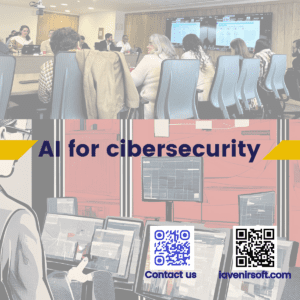Diversity, equity, and inclusion (DE&I) has become a buzzword in the business world in recent years, and for good reason. DE&I refers to the variety of perspectives, experiences, and backgrounds that people bring to the workplace. It encompasses everything from race and ethnicity to gender identity, sexual orientation, and age.
In a global economy, companies that value DE&I have a distinct competitive advantage. A diverse workforce can offer fresh perspectives, creative problem-solving, and a more nuanced understanding of customers and clients. However, achieving true DE&I in the workplace takes more than just hiring diverse candidates. It requires a comprehensive strategy that is embraced at all levels of the organization.
Senior HR managers have a critical role to play in building a DE&I strategy that drives business results. Here are a few key things they need to keep in mind:
Not just a box to check.
While many companies understand the importance of DE&I, some see it as a compliance issue rather than a business imperative. This approach is shortsighted and ultimately counterproductive. DE&I is not just about meeting quotas or avoiding discrimination lawsuits. It’s about creating a workplace where all employees feel valued, respected, and empowered to contribute their best work. Senior HR managers need to communicate this message clearly to the rest of the organization.
Requires a long-term commitment.
Building a truly diverse and inclusive workplace takes time and effort. It requires ongoing education, training, and awareness-building. Senior HR managers need to be prepared to make a long-term commitment to DE&I, even when progress is slow or difficult. They must also be willing to hold the rest of the organization accountable for meeting DE&I goals.

- It is everyone’s responsibility.
Creating a diverse and inclusive workplace is not solely the responsibility of HR. Every employee has a role to play in promoting DE&I. Senior HR managers should work with other leaders in the organization to ensure that DE&I is woven into the fabric of the company culture. This includes everything from hiring practices to team-building exercises to performance evaluations.
- Good for business.
Research has shown that companies that value DE&I are more likely to outperform their competitors. They are also more likely to attract and retain top talent. Senior HR managers should communicate the business case for DE&I to the rest of the organization. This will help build buy-in and ensure that DE&I remains a top priority.
- Ongoing journey.
DE&I is not something that can be achieved overnight. It’s an ongoing journey that requires constant attention and improvement. Senior HR managers should be prepared to adapt and evolve their DE&I strategy as the company grows and changes.
In conclusion, DE&I is a critical component of any successful organization. Senior HR managers have a unique opportunity to build a workplace culture that values diversity, equity, and inclusion. By embracing this challenge, they can help their company attract top talent, drive business results, and make a positive impact on the world.

